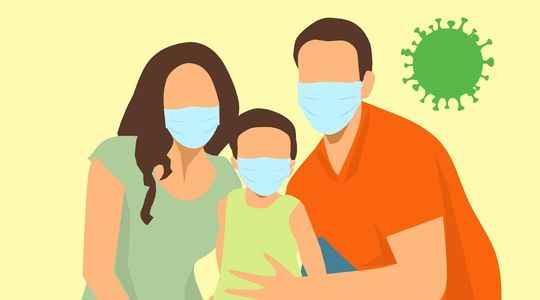Eating disorders, refusal to go to school, social phobia, depression… Has the Covid-19 epidemic deteriorated the mental health of children? Two years after the start of the pandemic, it remains difficult to measure the extent of its consequences. If studies have already been carried out in adolescents and adults, this is not yet the case in the youngest.
Public Health France is therefore launching, from this Monday, May 2, “with the support of the ministries responsible for Health and National Education and actors working with children and young people”, the major national survey called Enabee. It will be carried out until the school holidays with more than 30,000 children aged 3 to 11 years.
Why conduct such a study? How to participate and what will it be used for? We will explain everything to you.
Why conduct such a study?
“The health crisis has impacted the mental health of the youngest and has shown the need for action for care and prevention based on robust data. For this, it is essential to have indicators”, explains in the preamble Geneviève Chêne, Director General of Public Health France, in a press release.
However, data on the well-being of young children aged 3 to 11 “are today missing or still very fragmented”, indicates Public Health France. The survey, the results of which will be anonymized, will therefore aim to provide “an overview of the well-being of children” and “to measure and describe the different dimensions of well-being and the difficulties encountered, and to identify the circumstances, determinants, and impacts on children’s quality of life”.
Who is concerned ?
This is the strength of this study: some 30,000 elderly children will be directly questioned. 600 schools were drawn at random to participate. From CP, students will be invited to answer themselves a questionnaire adapted to their age on a tablet. Health, difficulties and living environment will be highlighted.
After agreement to participate and for an “as fair” assessment, teachers and a parent living with the child will also be surveyed. A 30-minute questionnaire will be offered to them on the Internet or by telephone. For children in kindergarten, “only parents and teachers will be questioned”, assures Public Health France.
How will it unfold?
An experiment was first launched in January 2022 in four randomly selected departments. The survey at the national level begins this Monday 2 and runs until the school holidays. An information letter will be sent to all those selected to participate.
From the CP, investigators authorized by the Ipsos institute, service provider in charge of operational implementation, will come to class for a session of approximately 1h30.
The first results for mainland France are expected by the end of 2022. But the study “is intended to be repeated at regular intervals”, aims Public Health France. The implementation of the study in the overseas departments and regions is planned for 2023.
To do what ?
The study will not make it possible to carry out individual diagnoses or to identify children who could be in difficulty. “The data will be analyzed at national and regional level and not at school and child level”, recalls Nolwenn Regnault, head of the early childhood perinatal unit of Public Health France.
The aim of the survey is to regularly produce health indicators for children aged 3 to 11a in order “to guide, promote preventive actions and best adapt the care and follow-up of children”, says the national public health agency.
